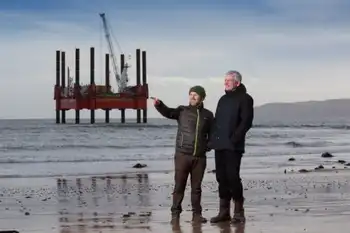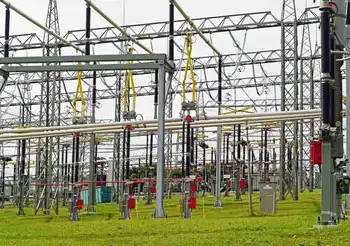U.S. rejects bid for post-Kyoto talks
MONTREAL, QUEBEC - The climate change conference hit a major roadblock when the United States rejected even a watered-down proposal for future talks on cutting greenhouse gas emissions.
The impasse came on the same day as news that a small community in the Pacific island chain of Vanuatu has been moved to avoid rising seawater attributed to the warming of the atmosphere by those gases.
The proposal, introduced by Canada's Environment Minister Stéphane Dion as president of the United Nations conference, calls only for two years of discussions on "long-term co-operative action to address climate change."
It was designed to be vague enough to appeal to the U.S., which adamantly rejects any hint of a move that might require it to accept mandatory targets for cutting greenhouse gas emissions. It makes no reference to targets and carefully refers only to discussions, with no mention of negotiations. Even so, the United States said it was inappropriate, because discussions could lead to negotiations.
"Formalized processes... (such as Dion proposes) are, in fact, negotiations," Harlan Watson, alternate head of the U.S. delegation, said earlier in the two-week conference. That "remains consistent with our position," an American official said.
"This is extraordinary. The (Dion) proposal was absolutely meaningless in the first place," said Phil Clapp, president of the New York-based National Environmental Trust. The plan is a crucial half of the so-called "two-track" plan to cut emissions after the first phase of the Kyoto protocol ends in 2012.
Canada and 39 other "developed" countries face mandatory targets in the first phase and are negotiating steps toward deeper cuts. The U.S. isn't part of the talks as it rejects the protocol.
Dion's plan is the second track, aimed at getting all countries here to start work on other future measures. The U.S. has a veto. Failure of Dion's plan would make it much harder to get agreement on the deeper cuts.
What remains to be seen is whether Canada, Europe and others will agree to weaken it further to appease the Americans or accept arguments the conference should go ahead without them.
In his only public appearance — kicking off a day devoted to culture, celebrations and speeches by aboriginal peoples from across the Arctic — Dion brushed by reporters.
Other delegations refused comment.
Dion's plan would help a little in the battle to curb climate change, said John Drexhage, executive director of the Winnipeg-based International Institute for Sustainable Development. But it can't be weakened further, he said. "This is the rock bottom for it to have any significance at all."
"It's an unending seminar on climate change," Clapp said. "We're past the point at which unending seminars are appropriate. It's time to abandon efforts to win co-operation from the Bush administration and get on with the real job of reducing emissions."
Related News

More pylons needed to ensure 'lights stay on' in Scotland, says renewables body
GLASGOW - Renewable energy in Scotland is being held back by outdated grid infrastructure, industry leaders said, as they warned new pylons and power lines are needed to "ensure our lights stay on".
Scottish Renewables said new infrastructure is required to transmit the electricity generated by green power sources and help develop "a clean energy future".
A new report from the organisation - which represents companies working across the renewables sector - makes the case for electricity infrastructure to be updated.
But it comes as electricity firms looking to build new lines or pylons face protests, with groups such as the Strathpeffer and…




